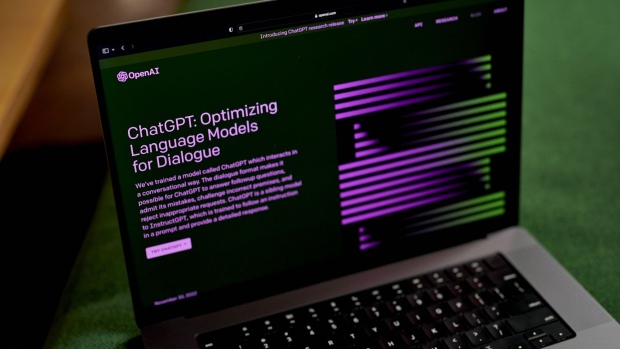Feb 16, 2023
OpenAI Is Faulted by Media for Using Articles to Train ChatGPT
, Bloomberg News

(Bloomberg) -- Major news outlets have begun criticizing OpenAI and its ChatGPT software, saying the lab is using their articles to train its artificial intelligence tool without paying them.
“Anyone who wants to use the work of Wall Street Journal journalists to train artificial intelligence should be properly licensing the rights to do so from Dow Jones,” Jason Conti, general counsel for News Corp.’s Dow Jones unit, said in a statement provided to Bloomberg News. “Dow Jones does not have such a deal with OpenAI.”
Conti added: “We take the misuse of our journalists’ work seriously, and are reviewing this situation.”
The news groups’ concerns arose when the computational journalist Francesco Marconi posted a tweet this week saying their work was being used to train ChatGPT. Marconi said he asked the chatbot for a list of news sources it was trained on and received a response naming 20 outlets.
OpenAI didn’t immediately respond to a request for comment.
News organizations aren’t the first companies to raise questions about whether their content is being used without authorization by artificial intelligence systems. In November, GitHub, Microsoft Corp. and OpenAI were sued in a case that alleged a tool called GitHub Copilot was essentially plagiarizing human developers in violation of their licenses.
In January, a group of artists sued AI generators Stability AI Ltd., Midjourney Inc. and DeviantArt Inc., claiming those companies downloaded and used billions of copyrighted images without compensating or obtaining the consent of the artists.
Like the Journal, CNN believes that using its articles to train ChatGPT violates the network’s terms of service, according to a person with knowledge of the matter. The network, owned by Warner Bros. Discovery Inc., plans to reach out to OpenAI about being paid to license the content, said the person, who asked not to be identified discussing a legal matter.
The use of artificial intelligence has been controversial in the news industry. Some journalists worry the technology will take over their jobs. Others fear the spread of misinformation. In recent weeks, publications like CNET and Men’s Journal have been forced to correct AI-written articles that were riddled with errors.
--With assistance from Dina Bass.
©2023 Bloomberg L.P.





